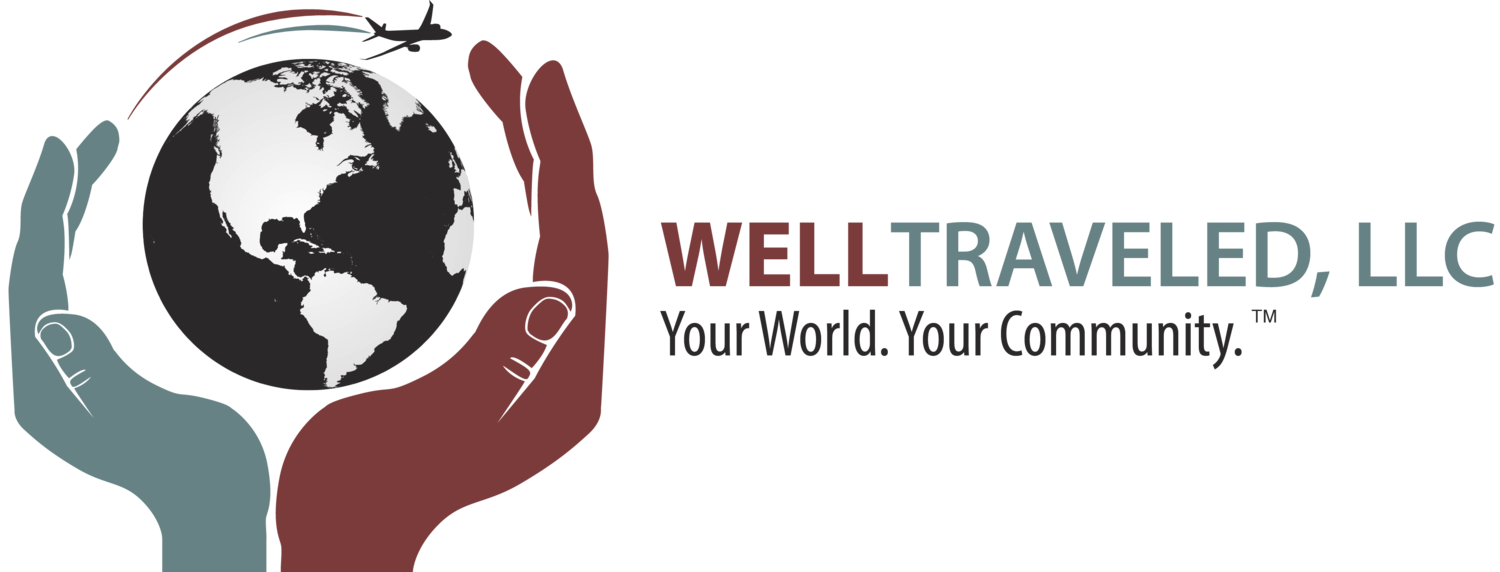My 7 and 8 year-old nieces, Jalynn and Brianna, call or FaceTime me at least once a month. The topics of discussion are usually about art class and cartoons. You know, kid stuff…
One day I decided to shake things up a bit. I wanted to share a lesson with them that they would be able to share with their friends at school. A lesson that they would carry forever.
So, what did I do?
I grabbed my laptop, opened Spotify, and played my “Creative Boost” playlist - my focus music. I plugged in my headphones because my wife REFUSES to listen to what she calls my “acoustic ocean music”.
As the music started, I pondered all of the recent news on TV and all over the internet - broadcasting the mistreatment of people because of their differences. The disregard of our unique differences made me think about a philosophy that I had learned while in South Africa: “Ubuntu”. I wanted my nieces to understand the importance of this word and apply it to their daily lives. The challenge was making the lesson easy enough for elementary school students to follow. After planning out my “delivery strategy”, the FaceTime session went like this:
Me: Ubuntu. Do you know what that means?
Jalynn: Ohbumtoo? *Brianna laughs at her sister’s pronunciation*
Me: Yes, Ubuntu.
Jalynn: No...
Me: Okay...let me explain. What am I holding in my hand?
Jalynn: Candy! *with a big smile*
Me: Good! What kind of candy is it?
Brianna: M&M’s!
Me: Very good! What can you tell me about these M&M’s?
Jalynn: They are different!
Me: How so?
Brianna: One is red and one is blue!
*I eat half of each M&M and show the insides*
Me: Okay...what can you tell me about the inside of the M&M’s?
Jalynn: They are both brown.
Me: Good...they both taste like chocolate too, right?
Jalynn and Brianna: Yes!
Me: So, you mean to tell me that the only difference between these M&M's are the outside?
Jalynn: Yes uncle. And I know how they are made. They make them all round and paint them with different colors.
Me: I see. I see. I want you to know that these M&M's are just like people. We all look different on the outside. But guess what?
Brianna: What?
Me: We are all the same on the inside. We all have feelings. We get mad, sad and excited. We are all human. Therefore, you should never treat a person differently because they are not the same as you. We are more alike than we are different.
Jalynn: Yea...you should treat people the way you want to be treated!
Me: Exactly! Good job! Can I tell you a secret?
Brianna: Yeah *whispering*
Not sure why she was whispering...
Me: We all depend on or need each other to become better people. We are all good at doing some things and not so good at doing other things. But if we work together, everyone is happy. Ubuntu is a word that I learned while in South Africa. It means ‘I am because you are.’ We should not focus on how different we look or think, but on how our different skills and gifts can help one another. Respect is important.
Brianna: I am because you are!
Jalynn: I am because you are!
Me: Yep. We are all connected. So, make sure you show respect to everyone no matter how different they are from you. Okay?
Jalynn and Brianna: Okay uncle!
While in South Africa, I attended a talk by Archbishop Desmond Tutu; the theme was human connectivity. He emphasized that as human beings, we rely on one another to survive. We are interdependent creatures by nature. Although we may look different on the outside, it does not change the fact that we are all the same on the inside. Archbishop Desmond Tutu pointed out that realizing our differences is important. For example, we all have different strengths and weaknesses. He mentioned that one person’s strength may be another’s weakness and vice versa. Both parties are better-off and able to thrive if they realize this and work as one. I am because you are!
So, how can we instill “Ubuntu” within the classroom?
It is important to provide students with opportunities to work in groups/teams, so that they begin to understand the power of collaboration. Projects and/or assignments that allow students to learn how to play off each other’s different strengths and ideas will better prepare them for the real world. Creating an awareness of “Ubuntu” will help our students understand the world that they live in and become effective global citizens.
Educators & Parents - Think of a project/assignment that allows students to work collaboratively with their classmates and/or family members. If you are having trouble thinking of one related to travel, feel free to use our free eresource: 50 Questions to “Engage Your Children and Students on Global Travel”.
Stay Educated. Stay Empowered. Stay WellTraveled.


